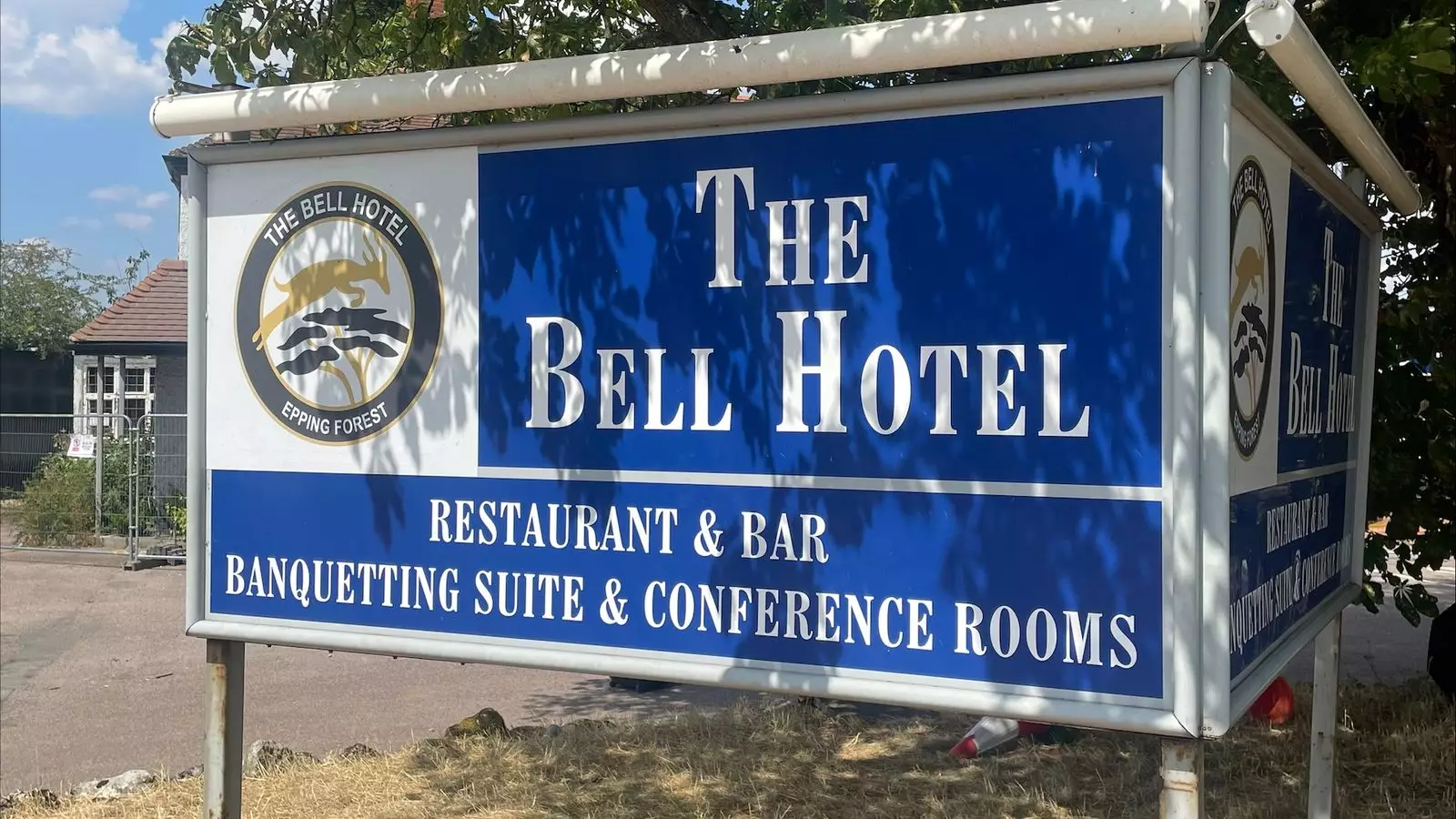In recent weeks, the heated dispute over the use of hotels to accommodate asylum seekers has exploded into a full-blown legal confrontation, exposing profound underlying tensions within our society. On one side, local authorities argue that housing asylum seekers in hotels, especially in locations like The Bell Hotel in Essex, destabilizes communities and undermines the traditional purpose of hospitality establishments. On the other, hotel owners and advocates maintain that such arrangements are crucial lifelines, providing necessary refuge for vulnerable populations while supporting local economies. The High Court’s decision to grant a temporary injunction against the hotel’s occupancy underscores the serious power dynamics at play—the state seeks to impose control, while private entities push back, citing economic hardship and legal ambiguities.
What makes this battle particularly complex is the nature of property rights interwoven with the broader moral questions about humanitarian responsibilities. The judge’s ruling, which mandates the hotel clear its occupants within 12 days, signals a prioritization of perceived community stability over the needs of asylum seekers. Yet, this decision does little to address the underlying issues: the long-standing failures of immigration infrastructure, the bureaucratic inefficiencies, and the moral question of whether communities should bear the burden of global crises. The legal skirmish becomes more than a dispute over a hotel; it transforms into a battleground over who holds moral and legal authority—as well as what society values most.
Community Backlash and Social Tensions
Amidst the courtroom debates, the local community’s voice has grown increasingly loud. Protests outside The Bell Hotel—some peaceful, others fueled by indignation—reflect a societal fissure that refuses to be ignored. Much of the anger arises from incidents like the assault charge against a resident asylum seeker, Hadush Kebatu, which has become a rallying point for those who see housing migrants in such settings as inherently dangerous or mismanaged. While authorities and humanitarian groups emphasize the importance of fair treatment and due process, the community’s fears—however exaggerated or justified—are undeniable.
This polarization exposes a broader discomfort: many residents feel their safety, town identity, and way of life are being jeopardized by what they perceive as unregulated or poorly planned asylum housing. The controversy reveals a societal struggle to balance compassion with the pragmatic desire for security—an emotional contest more visceral than rational. Such incidents and protests threaten to deepen divisions and hinder constructive dialogue, making policy solutions more elusive. It’s a stark reminder that legal rulings cannot occur in a vacuum; they must be considerate of local sentiment and the social fabric’s delicate weave.
Economic Dependencies and Ethical Dilemmas
Private hotel owners, like Somani Hotels Limited, find themselves caught between economic survival and moral considerations. The hotel’s management claims that hosting asylum seekers provides a vital financial lifeline, with contracts that support their business—especially given low occupancy rates otherwise. To them, housing migrants is a business decision, but one cloaked in moral ambiguity when weighed against community safety and planning regulations. Their opposition to the injunction hinges on fears of setting a precedent that could restrict their revenue streams and jeopardize their operational viability.
However, this reliance on government contracts raises uncomfortable questions about commodifying vulnerable populations. Should profit motives be prioritized over social responsibility? Is it ethical to leverage human suffering as a means of economic necessity? These questions challenge the very foundations of liberalism that promotes the dignity and rights of all individuals while also advocating for sensible, community-centered policies. The hotel’s argument seems to reveal a troubling prioritization—economic survival over social cohesion and moral duty.
Policy Failures and the Path Forward
At the heart of this controversy lies a fundamental failure: the inability of institutions to develop comprehensive, humane, and sustainable solutions for asylum accommodation. Temporary hotel housing, often a stopgap measure, has morphed into a recurrent problem that exposes gaps in planning and policy implementation. The reluctance—or outright refusal—of authorities to pursue long-term, integrated housing strategies fosters chaos and deepens societal divisions.
The legal action underscores an urgent need for a broader reform—one that balances community safety with humanitarian obligations. Politicians and planners must reflect on whether current policies serve the national interest or merely exacerbate existing inequalities and tensions. If we are serious about addressing the root causes of migration and providing dignified treatment for asylum seekers, there must be a paradigm shift that emphasizes comprehensive planning, community engagement, and ethical responsibility rather than reactive legal disputes and protest rallies.
This ongoing crisis illustrates that while the law can temporarily pause problematic housing arrangements, it cannot resolve the core ethical and societal issues at stake. A sustainable, compassionate approach demands leadership willing to confront uncomfortable truths, prioritize human dignity, and foster social cohesion amidst complexity. Only then can justice truly be served—not just in courtrooms, but within the fabric of society itself.


Leave a Reply